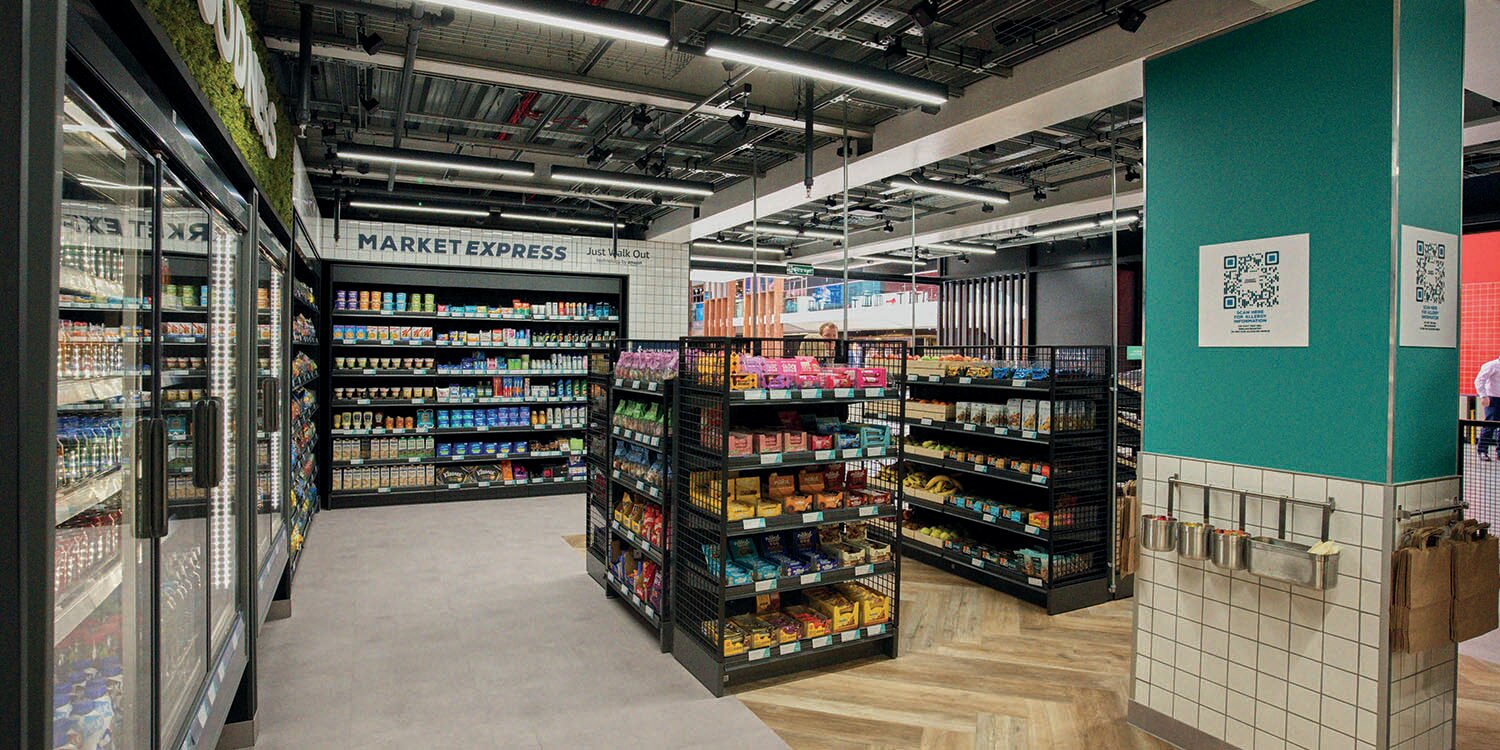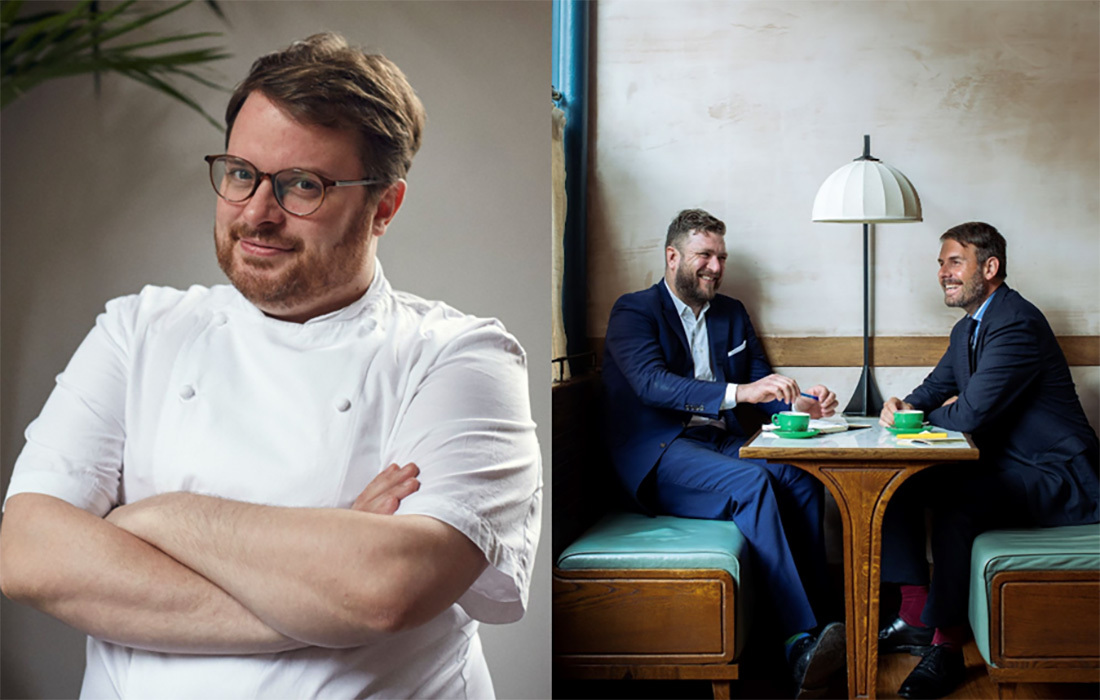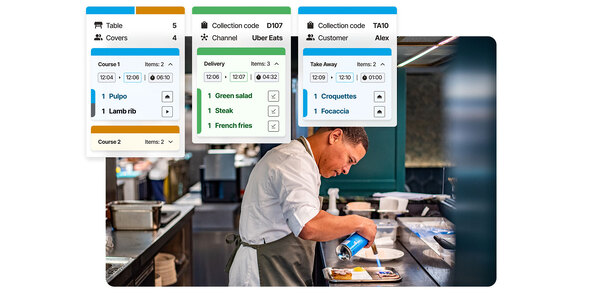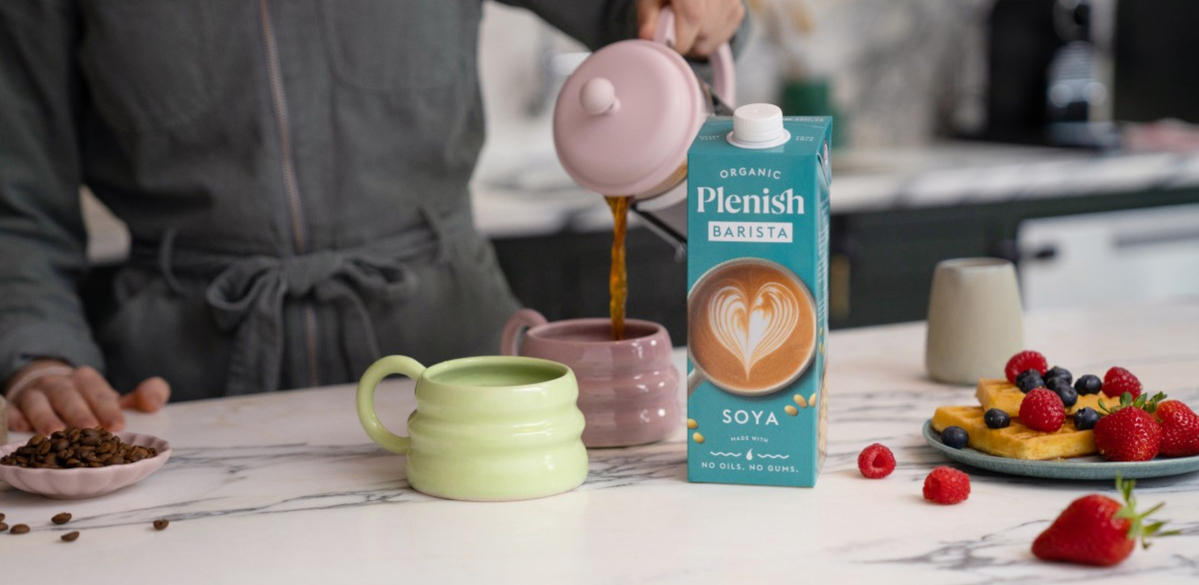Smart cookies: the hospitality tech of the future
From ‘restaurants in a box’ to video serving staff, technology in hospitality is racing ahead. Glynn Davis heads to NYC to check out the tech of the future
When Amazon Go launched its first convenience store in 2016, allowing shoppers to simply walk straight out without scanning or paying for their items, it was a game-changer in retail technology. Amazon’s ‘Just Walk Out’ solution, powered by computer vision, deep learning, sensors and geo-fencing, is used in a number of stores across the US and in 20 London locations, as well as in white-label partnerships with other brands, such as caterer Compass, in sites including the Shrewsbury and Telford Hospital NHS Trust and ExCel London.
Thanks to the onset of e-commerce, the retail industry has long been at the forefront of digital innovation and, every January, the latest technologies descend to New York City for Retail’s Big Show, organised by the National Retail Federation. But over the past couple of years, this flagship trade event has increasingly turned its attention to food and hospitality, incorporating a Foodservice Innovation Zone with around 30 technology solution providers.
Rob Grimes, chief executive of the International Food and Beverage Technology Association, helps organise this new element of the show and believes hospitality and retail are increasingly blurring. For instance, he suggests that the latest vending machines are effectively ‘restaurants in a box’ and that autonomous convenience stores are akin to 24-hour foodservice providers.
While much of the more innovative technology in hospitality is invariably centred on the quick-service restaurant (QSR) and fast casual dining brands, their activities are certainly a pointer to trends across the wider industry, and some of the technology will undoubtedly find widespread adoption across all dining forms.
In the restaurant in a box-type vending space is Roboburger, which is engaged in various pilots within colleges, shopping malls and petrol stations in the US. It has automated the process of cooking a burger from frozen, placing it in a bun and adding various condiments before dispensing it to the customer.
Audley Wilson, chief executive of Roboburger, says the solution can be sold on a white-label basis for food brands to produce any sandwich-type dishes: “Any retailer or brand can customise it because the bun is effectively a four-inch canvas for housing burgers, chicken, eggs or other foods,” says Wilson.
The eyes have it
Another vending machine supplier is Boxxtech, which dispenses alcoholic drinks and relies on facial recognition to verify the purchaser. Not only can it identify the age of the customer but, controversially, it also tracks the number of times a person has used the machine and can also determine their level of intoxication from facial cues.
The ongoing sensitivity of licence plate recognition in the US – never mind facial recognition – has stalled the technology’s early progress in drive-throughs, where it has the potential to be used to tailor the menu boards displayed to individual customers. Beth Warren, senior vice-president of marketing at Creative Realities, says CRI’s digital menu boards currently operate dynamically as they can adjust to take into account produce that is out of stock and happy hour-type promotions.
Warren says there is also an opportunity to use QR codes alongside its drive-through menu boards that link to the LetzChat’s translation solution, which can translate the menu into myriad languages on the customer’s mobile device.
Brian Klinger, senior strategic partnerships executive at Comcast, says this is a strong driver of sales: “If people can speak your language then they will spend more money and be more loyal. I see people all the time at kiosks in restaurants struggling to order. This solution can seamlessly enable a kiosk [or menu board] for all languages.”
Talk it out
Boosting the customer experience through technology was a key theme at NRF, with artificial intelligence (AI) playing an increasing role. Juan Perez, vice-president of product – foodservice at AI solutions company Kore.ai, says its products are already being used by food brands including McDonald’s in the UK as a virtual assistant on its FAQ page, but it is pushing further ahead by leveraging AI technology.
The company has just extended its capabilities with the launch of the FoodAssist solution, which uses conversational generative AI for order taking.
“An order can be created at the drive-through or over the phone. Gen AI is the order-taker in what is a complex undertaking. It’s a generative conversation,” he says.
This conversational element is also a feature of the solution from Conversa. It involves near-life-size videos of people in the dining space providing the opportunity for customers to interact and for it to answer questions. The AI-powered conversational video platform is already in use across the finance, medical training and retail industries, and the company says hospitality represents a new opportunity. Grimes agrees: “Conversa’s technology can impact the foodservice, hospitality, and retail industries by bringing back direct conversations between operators, guests, customers and staff – something lost during Covid-19. Conversa is changing the way we communicate where differentiation means being able to present your concept and story to a growing international audience.”
Bring the customer to you
AI is also beginning to feature in the delivery aspect of the food and restaurant industry, with location platform FlyBuy boosting its capabilities. It works with many brands, including QSR players such as burger company Five Guys, to optimise the flow of orders hitting the kitchen from various channels.
According to Steve Teller, vice-president of digital strategy at Five Guys, the next step is to leverage AI, along with geo-location capabilities, to have full visibility of the customers approaching its stores and being able to identify if they are going to the correct outlet or if they are maybe undertaking another task ahead of their pick-up.
“We can get ahead of them and send a message to notify them if they are in the wrong location. We might not save the order, but we’ll save the relationship. FlyBuy gives us this ability to identify these customer journeys,” he says.
This geo-location capability is a feature at Domino’s. Mark Messing, vice-president of digital at Domino’s, says it has enabled the company to be the first in the industry to launch its Pinpoint Delivery service, which allows customers to have their pizzas delivered to any location. Its current developments include using AI to personalise its recently re-launched loyalty programme by mining its troves of customer data to deliver a more dynamic experience.
Although AI featured prominently at this year’s exhibition, there was also recognition of the value of more mundane solutions that can be incredibly effective at boosting operational efficiency, such as more intelligent staff scheduling and using technology in the areas of health and safety.
Russ Richardson, head of sales at connectivity company MachineQ, says using automation to deliver operational efficiencies is incredibly important in helping counter the ongoing labour shortages in the hospitality industry. He cites the temperature monitoring work done by employees at Starbucks. The coffee chain has automated this at 11,000 stores by installing 160,000 sensors on all its fridges and chillers.
“The company has gained 30 minutes a day for each store for the re-allocation of labour to be focused on the customers. This is the low-hanging fruit,” he says.
And while it’s always worth keeping an eye on the whiz-bang technology that might be commonplace in the years or decades to come – who really predicted we could pop out for milk without paying before Amazon Go? – it’s this low-hanging fruit where businesses can really leverage solutions to help it survive the turbulence landscape facing operators today.
















